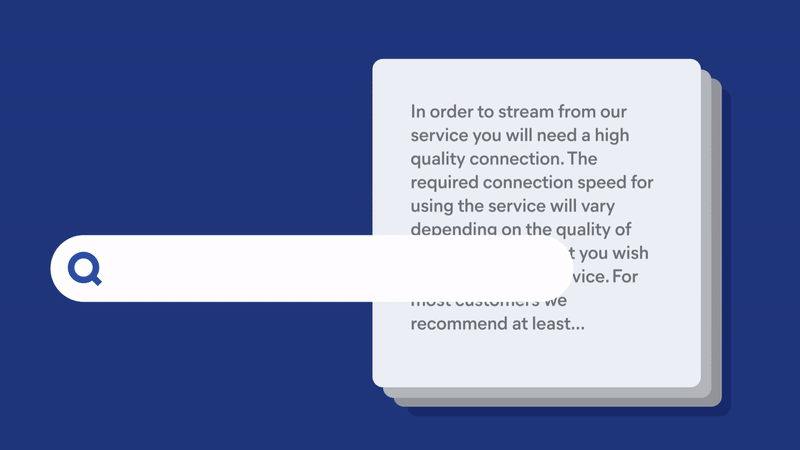Embracing the future of search relevance

When looking for new opportunities to innovate and compete, companies today need to look no further than search, which has come a long way from the search bar of old. Whether you’re enabling search across integrations your business relies on or building a state-of-the-art website experience, search is on the critical path to research and discovery.
The canonical search bar in mobile apps and websites is only the first step in the journey though. Additional value gets added when intelligent, robust solutions come together to build visually engaging customer experiences.
With the release of Elastic 8.0, we lowered the barrier of entry for teams to build intelligent search relevance. This release brings more machine learning (ML) capabilities into the core of the Elastic Search Platform, enabling natural language processing (NLP) applications such as sentiment analysis, entity recognition, and text classification in Elasticsearch. These technologies will empower teams to build complex ML-enabled experiences with significantly less time and effort, and it opens up limitless possibilities for how relevance can be used.
Machine learning in a nutshell
For folks that have experience in the ML space, the ability to build context around a piece of information is essential in ensuring NLP models are trained accurately and the correct information is retrieved for a particular event. Consider an example where you want to compare two phrases:
- I need to do my homework before I go to school.
- I need to go to school before I do my homework.
These sentences have different contextual meanings, but if you were to compare them using a keyword representation, they are perfect matches. But, a person would not make the same conclusion!
Context holds back search accuracy, especially as datasets evolve. To build contextual relevance and improve accuracy, Elastic uses dense vectors (a multidimensional array of strings). Multidimensional vectors have been present since Elastic 7.3, but teams had to build the models to power these vectors outside Elastic. That’s no longer the case. With Elastic 8.0 users can add NLP models from notable community repositories, as well as machine learning models from PyTorch, making it easier to integrate these models into applications that are already powered by Elastic, without any complex configurations. Because all of the work now happens in Elasticsearch, processing is hyper-efficient and no longer requires additional integrations.
A new frontier in customer experience
These advances will let teams build even more sophisticated search. Consider this ecommerce example. You have a typical search experience that customers find satisfactory. Then one day, with the help of your engineering team you launch visual search that lets customers provide an image of a product they want and, in return, they get a list of results.

Upgrades in performance, too
When innovations were made in Lucene, the open-source search library that Elasticsearch is built on, they also enabled approximate nearest neighbor (ANN) search. Elastic worked closely with maintainers of Lucene to bring this to reality. ANN are algorithms that balance efficiency, accuracy, and the algorithm that is used by Elasticsearch, called Hierarchical Navigable Small World graphs (HNSW). This algorithm has similar vectors close to each other, providing strong search performance. This means that as your data scales and becomes more dynamic, your search experience stays performant for users.
ANN automatically groups related words together, reducing the necessity of creating and maintaining vast synonym sets for your use case. This lets users ask questions in their own language and still get one single, correct answer instantly.

Get started
Elastic continues to invest in tools that make it easy for our customers to create extraordinary search solutions, whether they are for web, mobile, or a backend service. With the machine learning advancements in Elastic 8.0, customers have even better tools that will give them competitive advantages. We can’t wait to see the inspiring things you build with Elastic solutions.
Get started today with a free trial on Elastic Cloud in just a few clicks. Want to learn more about these advancements and how they can be applied to create a better customer experience? Check out our 2022 Enterprise Search trend: Machine learning-powered relevance webinar.